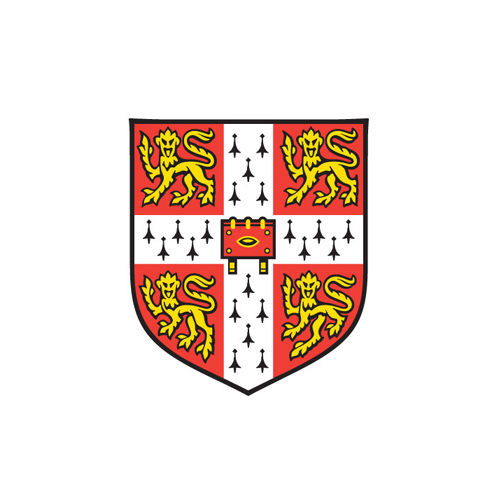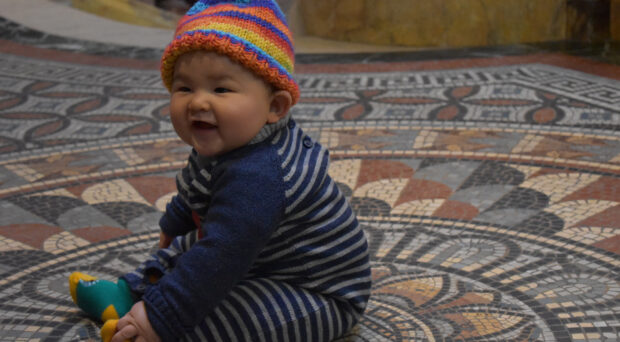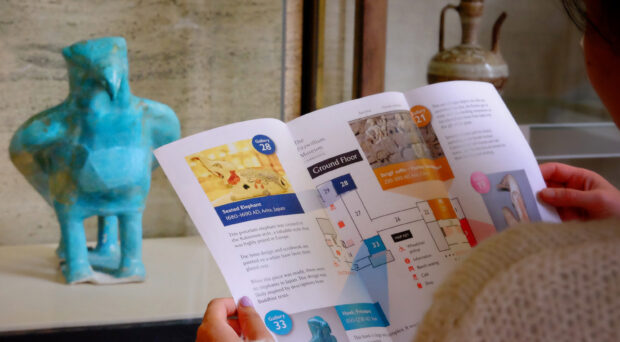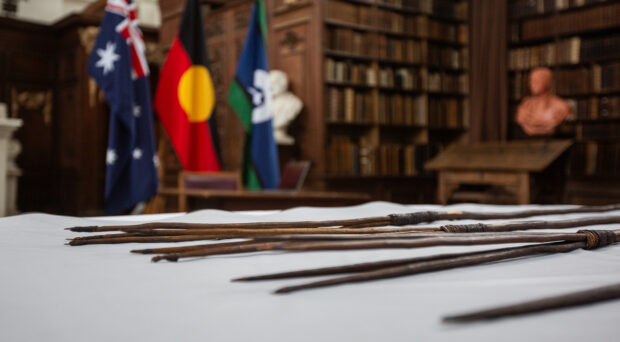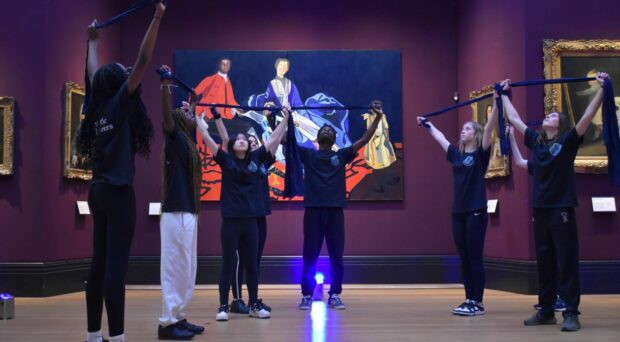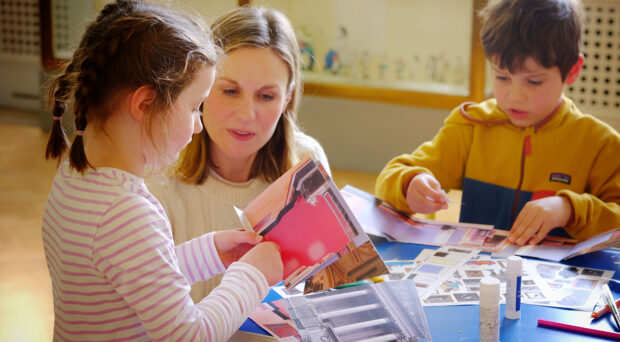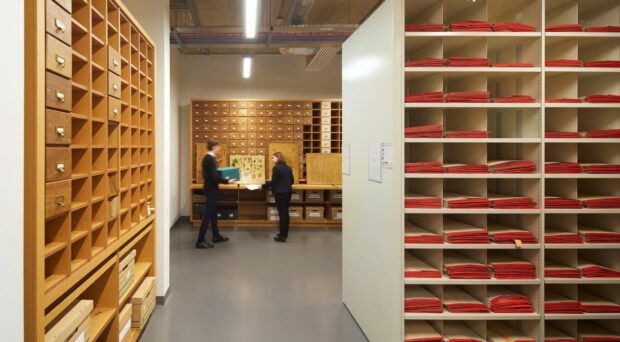Last month, we stood in solidarity with Black Lives Matter to express our commitment to institutional change. In a short blog post, we outlined some of the practical steps we are taking to honour that commitment.
The principles of dialogue, openness and frankness are central to our approach, and so we were pleased to receive an open letter from the wider Cambridge community, led by the Decolonise Art History and Decolonise Archaeology campaigns. While a full and formal response to that open letter from our Directors is currently in draft, we wanted to provide some further detail to supplement the original blog post.
As noted in the earlier post, we recognise that there is a long way for us to go. We are absolutely committed to going to the distance.
About the University of Cambridge Museums (UCM)
The eight University Museums that make up our consortium – together with Cambridge University Botanic Garden – are each independent institutions within the University of Cambridge, with their own governing bodies and subject specialisms. They vary hugely in size and scale, from the Museum of Classical Archaeology, with a full time equivalent staff of 2, to the Fitzwilliam Museum, with over 150.
As part of the wider University of Cambridge, our work is underpinned by the University’s commitment to Equality, Diversity and Inclusivity. It also means we face the same challenges as the wider collegiate University in terms of the under-representation of people of colour at all levels of our organisation, from students to senior academics and managers, and the urgent need to widen participation.
‘Although we are by no means perfect, universities stand for shared opportunity and a fundamental commitment to the creation of knowledge across all barriers of race, language, culture, and background. In the face of intolerance and historically entrenched racism, our community must strive to represent the alternative: openness to all with respectful engagement across our differences. We do not always live up to these aspirations.But as we witness the social division and deep pain caused by abuse of power and racism, I hope that we will all stand shoulder to shoulder to say ‘Enough. This must change and we are committed to being part of that change.’
Professor Stephen J Toope, Vice-Chancellor, University of Cambridge
The University is taking steps to address this, and is committed to Advance HE’s Race Equality Charter; we received a Bronze Award in November 2019. The University’s Race Equality Action Plan includes an inquiry into the legacies of enslavement, launched in 2019. You can find out more about our response to the Inquiry below.
That said, we don’t want to simply play our part in this wider effort. It is fundamental to our mission as the places where the University meets the wider world. Our collections are accessed by over a million visitors a year and attract a local and international audience far beyond the scope of their original foundations. Many visitors’ time in the museums is their first (and perhaps only) interaction with the University. The richness and variety of our collections should mean that many varied communities of interest can find relevance, and in turn enrich our interpretations through their insights.
As University museums, we recognise that:
- Across the arts and sciences, knowledge draws on the understandings and discoveries of many cultures and civilisations.
- Scholarship is at its most innovative and powerful when generated by diverse communities, reflecting the diverse perspectives and life experiences of colleagues, students and research partners
- Intellectual and ethical challenges represent opportunities to extend understanding and build relationships.
As a Band 3 National Portfolio Organisation funded by Arts Council England (ACE), we are committed to the democratisation of cultural production and interpretation expressed by the Creative Case for Diversity. The Creative Case states that arts and cultural organisations enrich the work they do by embracing a wide range of influences and practices. Organisations have a duty to nurture the development of diverse talent.
In a collections context, the Creative Case means ensuring that our exhibitions, research and public programmes (what we “create” as museum professionals and the practitioners we partner with) reflect a wide variety of voices and perspectives. It might mean collaborating with external partners to co-curate or co-programme, or making sure that across our permanent galleries, exhibitions and events we are exploring a diversity of experiences and identities.
We are also guided by Let’s Create, ACE’s new ten-year strategy for 2020-2030. Let’s Create requires funded organisations to address “the persistent and widespread lack of diversity and inclusivity in cultural organisations’ leadership, governance, workforce and audience”. It has a particular focus on strengthening connections with communities (especially those that are currently underserved), and ensuring that everyone has the opportunity to access cultural and creative opportunities.
We believe that engagement with the wider movement across the museums sector to open up our collections to our communities and democratise the process of interpretation is key to unpicking the unequal power dynamics within which our collections were assembled.
Our Workforce
As noted above and in our June blog, Black, Asian and Minority Ethnic staff are underrepresented at all levels of the University of Cambridge, with the lack of representation more stark at higher pay grades. Within the University Museums, only 5% of the workforce (which includes technical, professional services staff, education, engagement and visitor services, as well as curatorial and research roles) is Black, Asian or Minority Ethnic. This isn’t good enough. (6% is the average for ACE-funded museums in England: reference – ACE 2018-19 Diversity Report). We work with the University’s Equality and Diversity Section to monitor the diversity of the workforce.
Our response to this combines three approaches:
- Proactively developing a range of routes into the workforce, including curatorial and research opportunities, internships, studentships and apprenticeships, together with developing our recruitment practices
- Providing support and training opportunities for current staff
- Nurturing the museum professionals of the future through widening participation initiatives and strategic school partnerships, as well as targeted work experience opportunities. Recent examples include Walking on Thin Ice; Inspire; Rock ChYpPs
Diverse recruitment is a major focus across the University, particularly within the context of the Race Equality Action Plan. Everyone involved in the recruitment process, at any stage, is required to have undertaken unconscious bias training. The UCM supports its members to translate the University’s initiatives into the cultural sector, using best practice examples (such as ACE’s Culture Change Toolkit) and developing new resources, such as a job advert template (produced in 2020) and guidance on where to advertise.
We are committed to fully remunerating expertise, and work with a range of freelancers including academics, curators, artists and cultural practitioners. We are also working to diversify the pool of artists and freelancers we work with.
Supporting the staff body
The Change Makers Network of colleagues from across the UCM aims to drive a conversation around representation and diversity in the UCM and its collections, sharing knowledge and best practice and acting as a staff support network. The Network engages a wide pool of UCM staff and volunteers in discussion, networking and mentorship around equality and diversity issues.
Network meetings are programmed by the Change Makers Action Group (CMAG), the UCM’s equality and diversity working party. CMAG’s manifesto commits to promoting “positive and lasting change” by “informing, encouraging, challenging and empowering colleagues at all roles and at all levels.” CMAG’s Chair represents the group at the Cambridge Museums Steering Group (the committee of UCM Directors), and it is consulted on all major initiatives. A dedicated training budget supports the professional development of CMAG members.
We work with the University’s Equality and Diversity Section to provide museum-tailored equality and diversity training, including race awareness, unconscious bias, active bystander, and baseline equality and diversity training, and with specialist trainers on topics including disability awareness, mental health first aid and autism awareness.
Through our Diversifying the Museum Voice project, we are developing a joint approach to embedding a diversity of experiences, identities and perspectives within our galleries. A set of shared Principles will help us build meaningful and lasting projects and partnerships, learn from each other, and self-assess our progress.
Volunteering
We believe in the life-changing impact of volunteering on personal wellbeing and mental health, as well as on our museum community. Volunteering within the museums sector is sometimes criticised as entrenching privilege by allowing those with time and resources to gain valuable experience, as well as displacing roles that should be paid. The UCM firmly refutes this, and fully commits to remunerating expertise. Each volunteer role is scrutinised to ensure that it is appropriate for volunteering (i.e. that it doesn’t replace a paid role), and that it provides a meaningful experience for the volunteer.
We believe volunteering should be open to everyone, and our volunteering opportunities are as flexible as possible, including micro (one-off) volunteering roles alongside a range of onsite and remote opportunities. Where possible, we have reduced the participation age to 16; and we have recently introduced a “buddy volunteer” role to support volunteering by those with additional needs.
We are particularly proud of our award-winning Bridging Binaries LGBTQ+ tour programme, which combined the expert research and guidance from paid freelancers Dan Vo and Ellie Armstrong, who provided the tour content, with a meaningful volunteer opportunity. Some of the volunteers have recently documented their experience here on the UCM Blog (for example, “Hadrian, Antinous and Me”). Projects like Bridging Binaries enable us to contribute to the wider movement across the museums sector (and championed by ACE) to open up our collections to our communities and democratise the process of interpretation. Collaborating with and developing our volunteer community is a crucial part of this process.
Collections and audiences
The UCM runs yearly audience research across the museums to develop an understanding of who visits our collections. Black and Black British people are underrepresented within our audiences, at 1% compared to a regional average of 2% and national average of 3%. (2019/20 UCM audience data; regional and national averages drawn from the 2011 census and likely to be higher now).
Qualitative research with non-visitors, last conducted by the Audience Agency in 2017, suggested that:
- Participants felt UCM venues could feel more welcome and be actively used by communities. There is a perception among residents that the UCM venues are for tourists and visitors to the City, rather than local communities.
- The University Museums can be perceived as being “too difficult” or “too boring”, our status as University collections being perceived as both a positive and a negative by audiences.
- Objects are most valued through the story or emotional reaction connected to them, and the need to connect our academic collections to visitors’ daily lives and the contemporary world is paramount.
Informed by this research, we are focusing on the following approaches:
- Greater, and more active, involvement from our communities in the UCM’s activities
- Ensuring our collections, assembled over the last 200 years, speak to today’s audiences and retain their relevance for research and teaching
- Recognising that this requires an honest and open appraisal of the complex and unequal histories within which the University’s collections were assembled, and which have legacies within the collections today.
Greater and more active involvement from our communities
Collaboration and engagement with communities of origin
The Museum of Archaeology & Anthropology (MAA) is at the forefront of an evolving approach to community access to objects on loan, which sees collections made available in their countries of origin in community settings and regional museums, where previously they might have been installed directly in a national museum. A number of UCM collections support exchange visits to allow representatives of communities of origin to visit Cambridge.
A recent example is provided by the loan of 23 taonga (Māori ancestral treasures) to the Tu te Whaihanga: A Recognition of Creative Genius exhibition at Tairāwhiti Museum, Gisborne, Aotearoa New Zealand. Exchange visits took place in 2019-20 between MAA, Tūranga a Kiwa East Coast iwi (tribe) and Te Aparangi (Royal Society of New Zealand) and staff from Tairāwhiti Museum. Two blog posts (“Reconnecting with taonga” and “Lessons learnt: engaging with Māori taonga”) explore the impact of the exchanges. This partnership was developed through the Oceania exhibition, a co-production between the Royal Academy of Arts, the Musee du Quai Branly-Jacques Chirac, Paris, and MAA, and a truly international project that saw involvement from academics, students and community representatives from over 20 countries. Earlier this year, MAA, in partnership with the Pitt Rivers Museum in Oxford, hosted a group of Maasai activists and cultural spiritual leaders from Kenya and Tanzania: the encounter is documented on our blog.
Community Panel
From 2021, the UCM will convene a Community Panel, based on successful models used elsewhere in the museums sector. Meeting regularly across an initial pilot period of 18 months, this will be a paid opportunity for members of our wider communities to give their input and critique into UCM activities and approaches. We will also be strengthening our links with community leaders throughout the City with a new Community Network to bring together UCM learning and engagement staff with contacts from the City Council, community groups, and charities.
Consultation with student body
We are also working to increase involvement from the student bodies at the University of Cambridge and Anglia Ruskin University. This recognises not only the important role we can play in the “pipeline” of future curators, artists and researchers, but also that our increasingly diverse student body is often at the forefront of new thinking around collections. Many of the UCM institutions have student representatives on their governing bodies.
At MAA, for example, the Museum’s Guidelines for Repatriation were redrafted with input from student representatives on MAA’s governing committee as well as doctoral researchers and MPhil students in Social Anthropology and Archaeology. Their input included ensuring the wording of the policy was made more accessible to diverse audiences, clarifying the process of making a claim, and providing links to access further information about the Museum’s collections. The revised policy was approved by MAA’s governing body and it is now accessible on MAA’s website with an introduction stating MAA’s approach to the return of objects. MAA’s policy formed the basis of a shared UCM statement on returns, now available on the UCM website.
Ensuring our collections, assembled over the last 200 years, speak to today’s audiences and retain their relevance for research and teaching.
Sharing curatorial authority
Museum Remix is the UCM’s experimental programme exploring co-authorship, co-production and different approaches to bringing external voices and perspectives onto our collections. The programme investigates how our museums might provide creative alternatives to the “academic voice” in interpretation and bring to light under-explored objects and narratives, as well as give a platform to early career creators and artists.
The first Museum Remix workshop took place in June 2018, with the Museum of Classical Archaeology (MOCA), Fitzwilliam Museum and Sedgwick Museum of Earth Sciences welcoming 20 participants from across the museums sector, volunteer body, and universities. The event was co-developed and facilitated by consultants Sonya Dyer, Cheryl Bowen and Thanh Sinden, members of Museum Detox, who led the teams in each museum and guided discussion. The teams presented their findings at a Staff Forum which also included speakers from the Disability Cooperative Network and Leeds Art Gallery.
2019’s workshop built on the principles of dialogue and challenge developed in 2018 and added a creative element, with the teams working with guides from the Bridging Binaries LGBTQ+ tour programme to develop creative responses and new interpretation for UCM objects with LGBTQ+ resonance. The exhibition they created popped up at a number of UCM events and a community festival.
The current iteration of the project, Museum Remix: Unheard, is online, and invites our audiences to help us remix and retell the stories behind some of our under-explored objects. Each month, we set a new creative challenge, giving participants complete creative freedom to respond to objects however they wish within a chosen medium. While the move online was partly prompted by the Covid-19 closures, we are excited at the potential for developing our digital engagement practice and involving a far greater cohort of participants than would be possible onsite.
Museum Remix is as much about the process of creation, collaboration and negotiation that is a fundamental part of museum practice as it is about the end result, and represents a learning experience for everyone involved – participants, facilitators and staff. That said, we are committed to embedding the new interpretation created into our spaces. All the material produced in 2019 and 2020 is, or will be, made available online, and, once our museums reopen, made available from the galleries via physical installations or enhanced labels (using NFC chip or QR code technology). It will be linked as far as possible to the museum objects’ permanent database records.
Collections and interpretation for today’s world
Many of the UCM museums are revising their historical labelling and actively transforming their collections to speak to today’s audiences.
At MAA, for example, a project is underway to revise object captions for the displays relating to Asia in the World Anthropology gallery. This will include the installation of revised captions, correcting errors, changing outdated and improper language, and adding detail in many cases, will be installed in time for the Museum to reopen following the Covid-19 closures. A project led by Danika Parikh and funded by the University Diversity Fund is taking relabelling forward over the summer, with a group of BAME collaborators interrogating and remixing captions. New captions or commentaries will be prepared and installed by October.
The Fitzwilliam Museum is actively collecting and commissioning works that enable it to broaden its scope beyond Europe and East Asia to tell a global history of art. Recent acquisitions in the Department of Applied Arts are documented on the blog on new acquisitions within Applied Arts (Global acquisitions at the Fitzwilliam Museum). The Department of Paintings, Drawings and Prints is in the process of acquiring First Flight (2015), a series of etchings by British-Ghanian artist Lynette Yiadom-Boakye. Additional consultation on this strategic priority to ‘embrace a global history of art’ is planned for autumn 2020, when a Diversity Fund-supported project will create an opportunity for dialogue between the Museum and student groups interested in decolonisation, race and representation.
Generating and supporting new research
Research is at the heart of what we do as University museums, and we both drive forward new research and support a global community of researchers.
MAA, for example, is a partner in the SOAS-led Museum Affordances project, re-engaging with the ethnographic archive of N.W. Thomas, assembled in Southern Nigeria and Sierra Leone between 1909 and 1915. The project seeks to better understand the materials’ historical context and rethink their significance in the presence. The project involves academic and community partnerships in Nigeria, Sierra Leone and the UK.
The Museum of Zoology is engaging in decolonisation practice by researching the legacies of colonial violence associated with some of their specimens, and are submitting this as a journal article. A member of their team is also publishing a book on their research into colonial influences in the way people talk about animals today. It is hoped these activities will drive the natural history museum community forward in decolonisation practice.
At the Fitzwilliam Museum, the project ‘Currencies of Conflict and Dissent’ brings current research on extractive colonial monetary policies into exhibition work for the first time. It examines how coins and paper money were used as objects of occupation and empire, but could also be subverted as an act of defiance, rebellion and as a celebration of independence. The project has collected objects, and will be borrowing others, created by activists and artists working on social equality, public health, the environment, the unequal spread of wealth, and the plight of those fleeing conflict in the 21st century. The voices of the creators and those engaged in these initiatives will be an integral part of the exhibition text and accompanying catalogue.
The importance of collections-driven research has been recognised by the University with investment in a Research and Collections Programme, which brings together the UCM collections with the University Libraries. One of the programme’s first three strands will explore ownership and provenance, furthering understanding of how we should frame and understand ideas of ownership, origin and provenance within collections.
In 2018-19 we supported researchers from across the world with 7,746 research visits and 8,838 inquiries. All the UCM collections facilitate research, though, as noted at the beginning, they vary hugely in size and capacity. In 2020, we will launch a shared Research Hub on our website, making the process of engaging with the collections for research much more straightforward.
Developing digital infrastructure to support collections research is also a current key priority. In September 2019, the Fitzwilliam Museum, for example, published a renewed Documentation Policy outlining a 5-year plan to expand upon and enhance the 230,000+ digital records for museum objects and 350,000+ digital records for supporting media and terminology in order to describe the collections in a way that is accessible to as wide an audience as possible. The Museum’s Collections Explorer portal is currently offline for rebuilding. MAA and the Whipple Museum will also soon be launching new public-facing collections portals.
An honest and open appraisal of the complex and unequal histories within which the University’s collections were assembled, and which have legacies within the collections today
A transparent approach to the return of museum objects
As noted in our previous blog, we are committed to transparency when it comes to the objects we hold in our collections. The UCM collections range widely by period and region and include natural history objects, works of art, archaeological and ethnographic artefacts, photographs, archival documents, books and scientific instruments. Some museum objects were acquired in a manner that was not considered legitimate and inappropriate at the time, or would not be considered legitimate or appropriate today. The UCM is supportive of research into the histories of the collections, and will engage with claimants and potential claimants in an open and respectful way. Our approach to the return of objects is set out on our website at: http://www.museums.cam.ac.uk/returns.
Confronting the legacies of empire and enslavement
As are many institutions and organisations across the country, the UCM is coming to understand that the legacies of the colonial era are present throughout our collections and organisations. We have explored aspects of this in collaborative programmes such as Museum Remix and 2017’s India Unboxed season, and exhibitions including Astronomy and Empire (2018-2019) at the Whipple Museum of the History of Science and Flux: Parian Unpacked (2018) at the Fitzwilliam Museum.
We are aware this has only scratched the surface, and we want to do more. In 2022/23 we will deliver a year of public programming exploring the legacies of empire and colonialism through our collections, helping us transform our knowledge about and approach to our collections at a time when this is urgently needed. Plans for the programme are already underway, and we will give a more full update soon.

